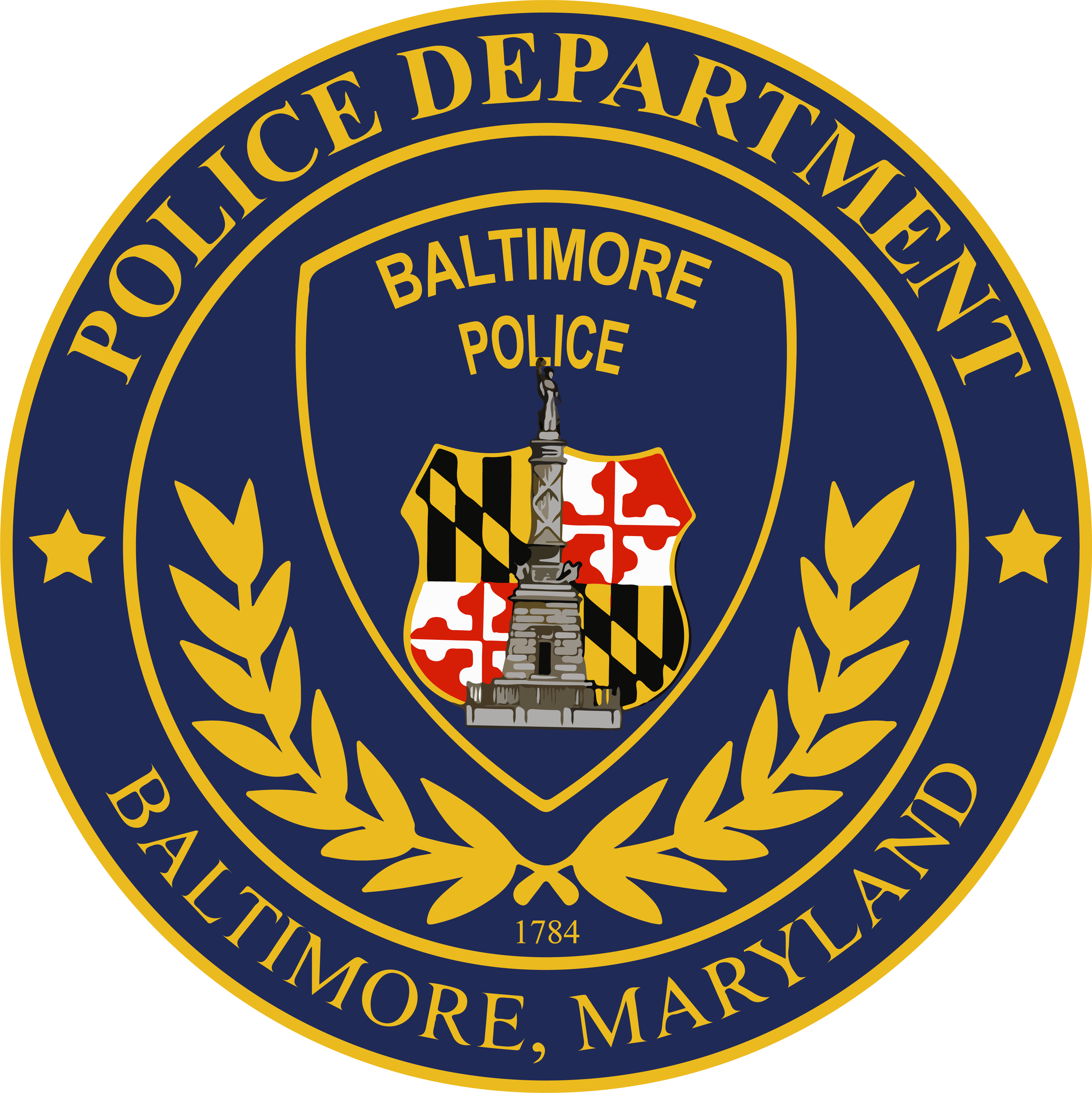About The Department
Mission
The Baltimore Police Department is dedicated to upholding the Constitution and enforcing laws in a fair, impartial, and ethical manner. We commit to creating and maintaining a culture of service that builds trust and legitimacy in all communities, values the sanctity of human life, and provides for the safety and well-being of all.
Vision
The Commissioner’s vision for the Department is built around seven core focus areas:
Crime Reduction
Reducing and preventing crime in the City of Baltimore is a core mission for our department, but it cannot be done by the BPD alone. By working collaboratively with our City’s residents, businesses, advocacy groups, non-profit organizations, faith leaders, elected officials, as well as with other city, state, and federal agencies, we can provide a multi-layer approach to solving underlying issues that lead to crime. BPD will develop effective deployment strategies that focus on those responsible for committing violent and property crimes and work with residents to address disorder problems that affect the quality of life in their neighborhood.
Community Engagement & Policing
While BPD is responsible for policing our community, it is also an integral part of it. We will only be successful in our crime reduction efforts by effectively engaging and listening to the needs of the people who live in the neighborhoods we protect. Working with and learning from our residents, our officers must focus toward fully understanding issues that impact our communities. We will work collaboratively with residents to create problem-solving strategies tailored to the challenges faced by specific neighborhoods and communities in our City.
Continuous Agency Improvement
BPD will improve policies and training, overhaul antiquated technology, and create accountability systems to provide better services to the community. Through these reforms, BPD will dramatically change its practices to ensure proper uses of force; constitutional stops, searches, and arrests; fair and impartial policing practices; and true community policing operations. BPD must embrace these reforms because the residents of the City of Baltimore deserve a world-class police force that inspires trust, ensures safety, and protects the constitutional rights of the people we serve.
Creating a Culture of Service and Accountability
With the reform efforts underway to improve how BPD operates, we must also instill a renewed sense of civic duty, honor, integrity, and a culture of accountability in our department. BPD will implement new performance management practices, better systems of tracking and measuring work performance, as well as new COMSTAT processes that actively challenge its Command Staff to provide strategies and solutions that are responsive to community needs.
Connectivity
BPD will adopt and embrace new technologies and new partnerships within and outside our agency. BPD must become more transparent and more connected, so that we break down information silos and focus our efforts in a coordinated and better organized manner.
Capacity Building
Leadership development within BPD is the key to our department’s long term success. We will invest in better training, adopt improved systems of accountability, and improve how our department operates by hiring civilian professionals to manage administrative processes. We will also improve our recruitment, hiring, and retention efforts to ensure that we can increase our ranks to be able to fully respond to the needs of 21st century policing.
Communication
Effective communication has to be at the heart of everything we do in the Baltimore Police Department and we must effectively engage, actively listen, and work collaboratively with our residents to be successful. We will strive to improve and maintain effective lines of communication so that we can strengthen our relationships, build new relationships where there are none, and repair the relationships that were broken in the past.
Police Commissioner
Police Commissioner Richard Worley was nominated to lead the Baltimore Police Department on June 8, 2023, by the City of Baltimore. He was confirmed on Oct. 2, 2023, and sworn in on Oct. 5, 2023.
He joined the Baltimore Police Department in 1998 as a Police Officer Trainee. He spent his first four years with the Department as a Patrol Officer in the Western District. He was promoted to Sergeant in 2003, where he worked the midnight shift and an administrative position. In 2008, he was promoted to Lieutenant and assigned to the Northern District, where he worked patrol and operations. In 2009, he was promoted to Captain and remained in the Northern District as the Executive Officer. He was promoted to Major in 2012 and assigned as the Northeast District Commander. In 2016, he was promoted to the rank of Lt. Colonel and worked as the Assistant Chief of Patrol, the Assistant Chief of Internal Affairs, and the Chief of Homeland Security. In 2018, he was promoted to Colonel and became Chief of Patrol. In 2021, Commissioner Worley became Chief of Criminal Investigation, which included overseeing the Homicide Unit, the Citywide Robbery Unit, the Special Investigations Unit, the Anti-Crime Unit, and the Warrant Apprehension Task Force.
In 2022, he was promoted to Deputy Commissioner of the Operations Bureau, where he oversaw Patrol, Criminal Investigation and several other units.
Organizational Chart
Fallen Officers
Those Who Made the Ultimate Sacrifice and Those Who Continue to Serve
Law enforcement officers put their lives on the line for the safety and protection of others. While crime nationwide is at a historic low, that protection comes at a price. For the past decade, an average of 146 law enforcement officers have been killed in the line of duty each year, and more than 20,000 law enforcement officers throughout U.S. history have given their lives in service to their communities.
The Baltimore Police Department has suffered 136 line-of-duty deaths, dating back to 1808.
Collective Bargaining Agreements
Written, legally enforceable contract, between the City of Baltimore City Police Department and the Fraternal Order of Police, Unit 1 represented by Office of the Labor Commissioner.


